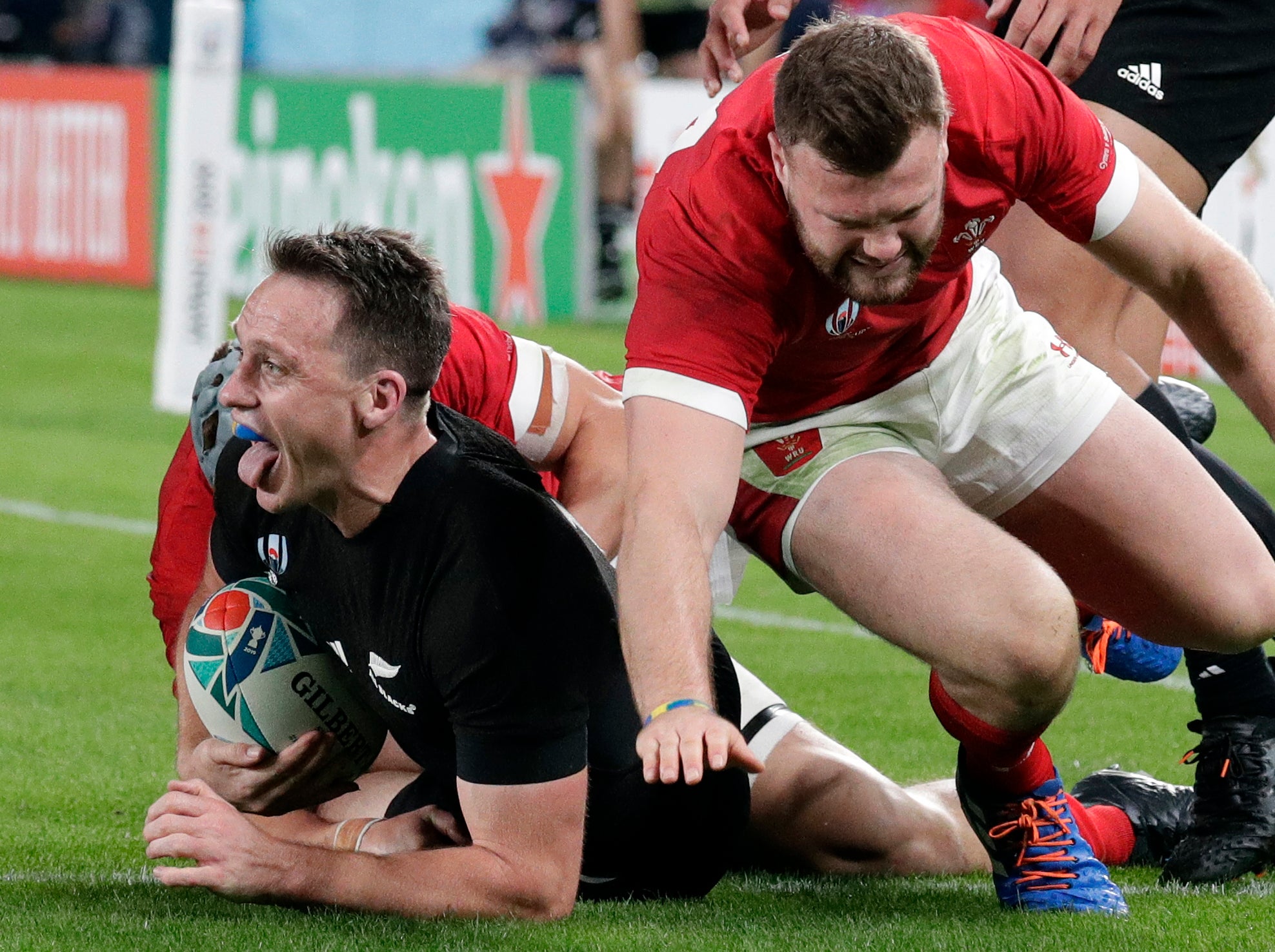New Zealand vs Wales: All Blacks show their class to win Rugby World Cup bronze match
New Zealand 40-17 Wales: Ben Smith scored twice as the three-time world champions proved far too good in Warren Gatland’s final game in charge

The wait continues. In a World Cup third-place play-off that offered little in the way of significance or tension, Wales found themselves on the familiar side of history. Much of the conversation before the encounter had been whether the men in red, after 66 long years, would finally be able to get one over their opponents here in Tokyo. But against a superior and incisive All Blacks side, one still smarting from their semi-final defeat by England, it wasn’t to be.
It’s now been 66 years and 31 matches since the Welsh beat New Zealand. The last time they did so, in 1953, the UK was 20 years from joining the EU (then known as the European Communities), Elizabeth II had been on the throne for just over six months and Warren Gatland was yet to be born. A different time, a different era – but some things don’t change, not for the Welsh at least.
After their dethronement in Yokohama last weekend, the All Blacks were in no mood for pleasantries as they cruised to an assured 40-17 victory over their northern hemisphere rivals. With head coach Steve Hansen and a number of veteran players to step down from international duties after the tournament, including captain Kieran Read and double try-scorer Ben Smith, the three-time world champions made sure to hand their leavers a winning send-off.
For Gatland, who leaves his position after 12 long years in charge of Wales, this was not the World Cup swansong he will have wanted. Despite the spirit and fight showcased by his men, as embodied in both of their gutsy tries, the gulf in quality was too wide to turn this match into a closely-fought contest.
But this is not the performance Gatland will be remembered for. His influence as head coach has been transformative over the past decade, having stripped the Welsh of their underdog status, led them to four Six Nations titles and ever so briefly lifted them to No 1 in the world. The Kiwi’s legacy will live long beyond the scenes of this particular affair.
Inflicting a second consecutive World Cup defeat on New Zealand, something that has not happened since 1999, was always going to be a tall ask. After losing six players to injury in the week before, this was a Welsh side seemingly held together with PVA glue and sticky tape. Without the likes of Josh Navidi, Liam Williams and George North among their ranks, stopping the All Blacks seemed nigh impossible.
It came as no surprise, then, that the free-wheeling, penetrative rugby which had been nullified by England last weekend was allowed to spread its wings from the get-go in the Japanese capital. With just five minutes on the clock, a lightning flash of offloads opened up the Welsh defence on their own 22, Brodie Retallick making the initial break before releasing Joe Moody to charge home for New Zealand’s first try.
The All Blacks’ second score came eight minutes later, with Aaron Smith and Beauden Barrett combining down the short side to send through the full-back, whose angled run and devastating speed left a trail of red shirts in his wake.
To their credit, the Welsh rallied to offer some form of resistance and, for 15 minutes at least, keep this match alive. After nearly five minutes of pressing and probing, with the phase count up to 15, Rhys Patchell sent a long, whipped pass out left, missing three sets of hands in the process, to release Hallam Amos. From 15 metres out, the full-back drifted inward, away from his marker and through to the try line.
But Smith’s subsequent two-try punch, coming in the final seven minutes of the first half, shored up the sense of inevitability hanging over this game. The first came off the back of a gorgeous, cutting line that sliced the Welsh in half while the second, with the gong of half-time already rung, followed a heavy hand-off on Tomos Williams down in the right-hand corner.
The second half started in a similar vein, with Ryan Crotty, another All Black now set to retire, barrelling over on 46 minutes after a typically swish offload from Sonny Bill Williams. Smith looked to have his hat-trick moments later but a forward touch from Rieko Ioane in the build-up was spotted by referee Wayne Barnes, who ruled out the try after consulting with the TMO.

The let-off appeared to lift Wales out of their malaise, despite losing Rhys Patchell to injury – yet another Welshman to make a premature exit at this World Cup. A break from Justin Tipuric and Aaron Shingler in quick succession handed Gatland’s men the momentum before Josh Adams, after 20 draining and exhausting phases, forced his way over from close encounters – his seventh try of the tournament.
New Zealand, though, made sure to have the last say. After an All Black scrum five metres out in the dying minutes, it was Richie Mo’unga who carried over play, utilising his tricky feet to dance past a tired and worn Welsh defence. A final flourish for Hansen’s side and a victory which brings down the curtain on one of the most dominant, irrepressible eras seen in the history of the game.
Join our commenting forum
Join thought-provoking conversations, follow other Independent readers and see their replies
Comments